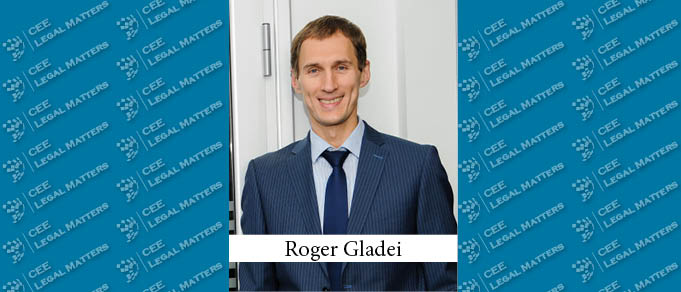“Naturally, nobody in Moldova was prepared for this situation,” says Roger Gladei, Managing Partner of Gladei & Partners in Chisinau. “Still, even though the first reaction of the Government was sporadic, in the end, they were able to put resources together and come up with an articulated response to the crisis."
The state of emergency that was announced in Moldova on March 17 was cancelled on May 15, Gladei reports, noting that the intervening period was “challenging, but rich in opportunities." According to him, “since the initial reaction by the Parliament wasn’t robust enough, the Government started wearing the pants and passed an emergency ordinance on business support in its first pool of actions. The ordinance was declared unconstitutional by the country’s Constitutional Court, however. I think there is a good lesson to be learned here: everybody just needs to do their job.”
Ultimately, Gladei says that the first reaction of the Government was prompt – but not sufficient. “Salary taxes paid," he says, "including insurance premiums and social contributions, could be partially repaid by the Government, but there was fair criticism that the mechanism employed was not the most effective. Employers would have to pay the taxes first in order to receive reimbursement – but the problem is that crisis-affected employers are short of cash to pay in the first place.”
He sighs. “The question at this new juncture is whether the Government will be able to subsidize salaries and offer real and sustainable support to the business community. This, of course, will require a large-scale allocation of public funds. The good thing is that Moldova’s development partners like the IMF, the European Commission, and the EBRD have pledged their support. Still, the budget gap is assessed as approximately one billion dollars, so the Government is seeing itself as omnivorous, looking both West and East for financial support.”
However, Gladei says, obtaining it has been contentious as well. “There have been negotiations about potential sovereign loans with both Russia and the Western partners (particularly the IMF)." The first attempt failed, he says, as "starting from the pole-position, the Russian USD 200 million loan was sent to the ditch by the Constitutional Court shortly after signing.” By contrast, the IMF's provision of USD 235 million in financial assistance was approved on April 17, catalyzing developmental partner support. Shortly thereafter, he reports, "the Parliament pulled itself together and voted for the conditionalities to access the EU 100 million loan, setting a fragile but sustainable platform for the Government to cope with the economic problems brought by COVID-19."
“Even though the situation is not as good as it used to be, qualified lawyers are still busy,” says Gladei, adding that “even if they are able technologically to work remotely, we failed to keep up with the ‘stay home’ slogan entirely, since our clients (both existing and new) have been keeping us fully geared. Most existing clients elected to keep their projects rolling, and some even started new projects. The recent experience of closing the Moldcell acquisition – a cross-border complex M&A transaction – amid a state of emergency was truly amazing, as we didn’t know until the last minute if we would be able to complete it, as stones were falling from all sides. On the other side, a whole new wave of clients interested in learning how to adapt to new rules or how to restructure their contracts given the situation just recently showed up.”
“Against this background, we established a dedicated portal on our website to provide first-hand legal analysis of the most stringent COVID-related legal issues," Gladei says, proudly, "and we have now embarked on a new thrilling project, supported by the EBRD, providing legal assistance to Moldovan SMEs affected by the pandemic. It’s natural to feel a duty to help people overcome their problems in times of need.”
“Things are starting to get back to normal in Moldova,” says Gladei optimistically. “The situation, no matter how unfortunate it is, will shake up business and make way for new opportunities. It’s important to always look for a way to transform a threat into an opportunity. This means that companies will have to shift towards more viable models, understand their weaknesses, and rethink their business. I think that after the crisis passes, Moldovan business is going to become more mature and competitive, opening the door to investment and growth.”





























